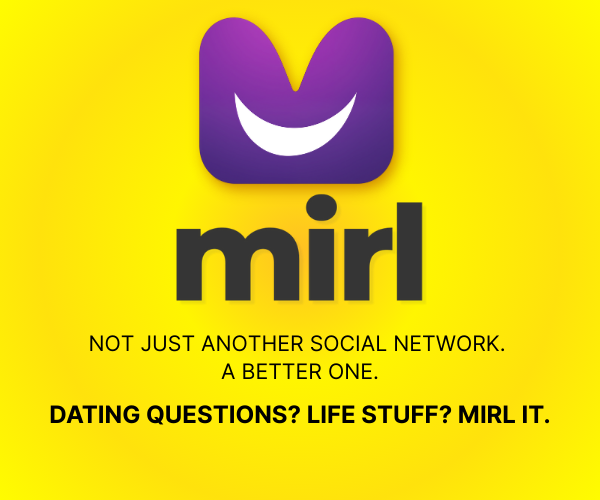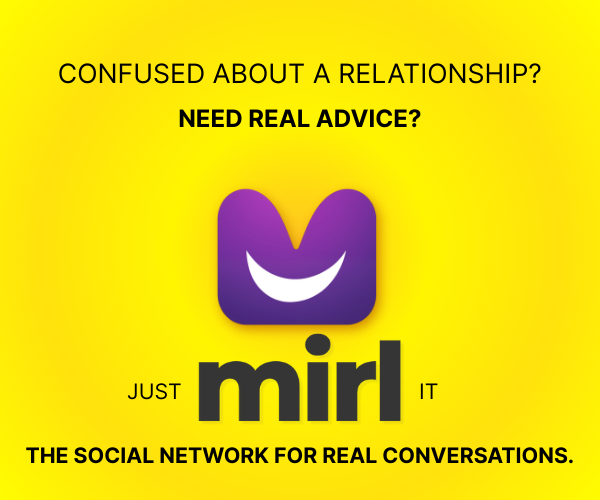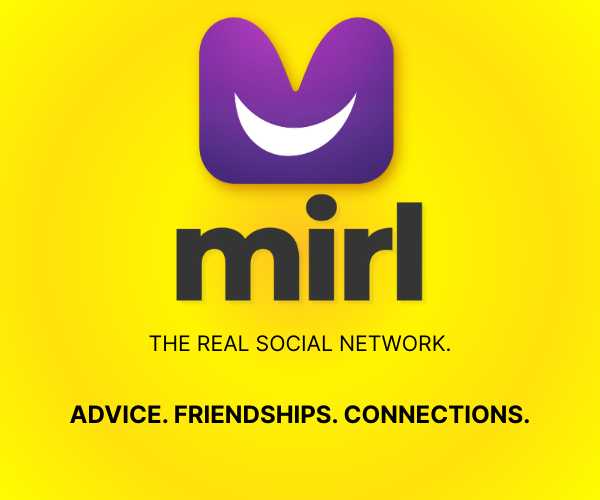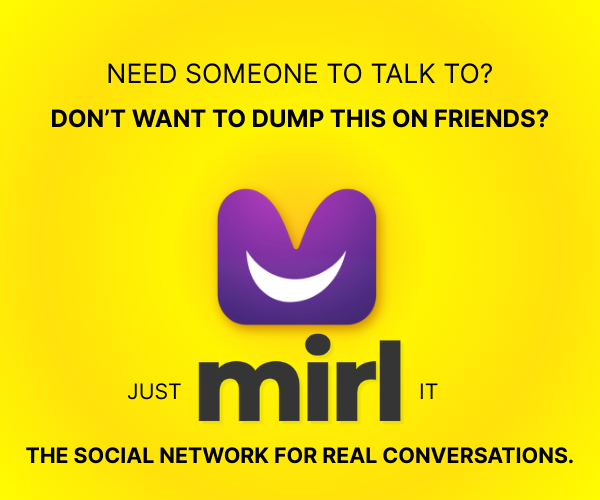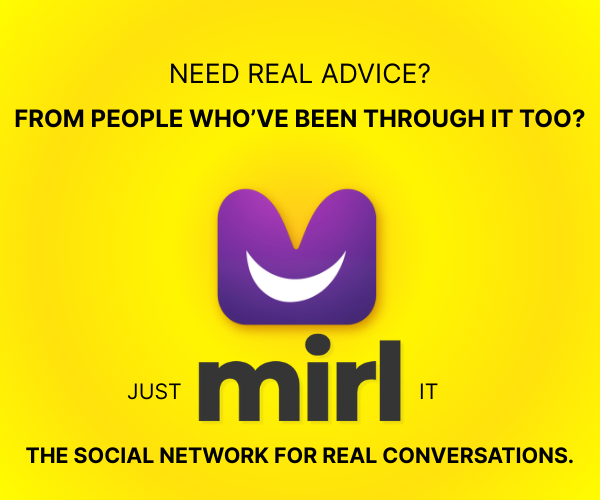Autophobia: What It Is, 25 Signs, Causes & How to Calm the Fear of Being Alone

If you have autophobia, your fear of being alone could be holding you back more than you think. Read on to find out how to let your fear go and find peace.
There are very few certainties in this life. But the one thing we can all be certain about is that when it is time to leave this earth, we leave alone. If you have autophobia, or a fear of being alone, take heart, you aren’t alone. All of us struggle with loneliness at some point. It’s not pleasant, but it’s never permanent.
Of course, no one can blame you for calling a family member or making plans with a friend when the loneliness in your empty house gets to you. We’re naturally social creatures, so it’s nice to talk to other people. [Read: 27 fun ways to make new friends]
However, if you find yourself doing all that you can to avoid spending time alone, maybe your fear of being alone is taking over your life.
If that’s the case, or if your fear of being alone feels like a phobia, there might be more you need to know before you beat this fear for good and find peace in solitude.
Autophobia – The fear of being alone
Most of us don’t like to feel alone. And sure, most of us will pick up the phone or leave the house if our lonely feelings are getting a bit too much. But if you feel like your fear of being alone affects your everyday life, your mental health, or even your relationships, then you may be struggling with autophobia.
Simply put, this phobia means that you have an irrational and debilitating fear of being alone, lonely, or isolated. You can’t handle not being around people, and you’re deeply afraid of being rejected or abandoned. [Read: Fear of rejection: 56 signs, causes & ways to overcome it]
With this fear, you could be in a room full of people and still be weighed down by the crushing anxiety you experience surrounding loneliness. Autophobia can strike at any moment, which is perhaps what makes it so hard to live with.
What’s the difference between fear of being alone and loneliness?
Loneliness is an inevitable feeling that creeps up on all of us, whether it’s for a few short moments or during a particularly difficult period in our lives. [Read: Powerful ways to combat and break out of loneliness]
But once those moments pass, we move on. We can feel lonely for a short while, and then we pick ourselves up, see our loved ones, or make new friends. However we deal with it, it’s like water off a duck’s back.
But if you have autophobia, it’s not as simple as that. Every day might be a fight against the inevitable loneliness by constantly surrounding yourself with people.
Now that doesn’t sound so bad, but if you really can’t be alone for more than a minute, or if you can’t bear to be left alone in a place that should be familiar or comforting to you, like your own home, this isn’t healthy.
Is your fear of being alone normal?
The short answer is yes!
The long answer is that it’s kind of biologically hard-wired into us. Back in the early days of humanity, before we had small comforts like laws and indoor plumbing, we had to fight to survive just like every other animal species.
But unlike the lion with its teeth or the bear with its claws, we don’t have a lot of natural weapons on our persons. We’re almost defenseless.
So, it was paramount for our survival that we stay in groups. One person against a lion is a goner, but a large group against a lion stands a fairer chance. It’s because of that survival instinct that even today, we feel the need to be around other people.
And even though being alone today doesn’t mean that you’re guaranteed to become a predator’s lunch, we still feel anxious, or even just sad, when we feel truly alone. We’re naturally built to be social creatures, so when we’re not a part of a group, we feel isolated, anxious, fearful, and overall just very down.
[Read: How to deal with loneliness – The best ways to bring you back to life]
Who is at risk of having fears of being alone?
Even though this fear is a very natural thing within us, there are certain groups of people who are more predisposed to having this phobia.
1. Borderline personality disorder (BPD)
BPD is a disorder that affects the way you feel, think, and interact with others. It causes emotional dysregulation, impulsive behavior, and quite commonly, autophobia.
If you have BPD, you might be intensely afraid of abandonment or rejection, which can manifest itself into this phobia.
2. Dependant personality disorder (DPD)
DPD is a type of anxious personality disorder, which essentially makes someone completely and entirely dependent on other people to take care of them.
This disorder has quite a social aspect to it, as the sufferer needs someone around them to depend on. So, it makes sense that autophobia is something that would be deeply embedded in someone with DPD.
[Read: Why am I codependent? 37 reasons & signs you overstep boundaries in love]
3. Panic disorder
Those with a panic disorder have a fight-or-flight system that sets off even when there is no perceivable danger, which results in unprompted panic attacks.
Because of the unpredictability of these panic attacks, a person with a panic disorder may have a fear of having a panic attack while alone, as these attacks can be very difficult to go through without support.
[Read: How to help someone with anxiety & not say or do the wrong things]
4. Family history
If you grew up with a parent who had autophobia, you’re likely to also take on the same or a similar phobia.
Whether it’s nature or nurture at play here, we’re not too sure. You can either inherit this phobia or learn to fear being alone by witnessing your parent’s behavior. Either way, those with a family history of autophobia are more likely to have this fear themselves.
5. Gender
Many studies have found that women are more predisposed to anxiety disorders than men. The cause for this is once again not directly known, but if you’re a woman, you’re more prone to developing most anxiety disorders, autophobia included.
Causes of having the fear of being alone
There are many situations or causes that can prompt a fear of being alone. Some of these include:
1. Being ignored, uncared for, or feeling abandoned.
2. Divorce or loss of a parent during childhood.
3. Getting separated from a loved one in a crowd or other public setting.
4. Having a panic attack, injury, or another emergency, like a home break-in or mugging without someone to help.
5. Witnessing a traumatic incident without someone to support you.
As you can see, there are many triggers that can cause someone to develop autophobia or just a general fear of being alone. But knowing these triggers is useful to help you pinpoint where exactly your fear comes from and how to best avoid your fear being triggered.
Signs you fear being alone
As we’ve already said, feeling alone and a bit sad is very different from actually experiencing autophobia. If you’re struggling with this anxiety disorder, you likely exhibit the following symptoms:
1. Feeling antsy or restless
Alone in your bedroom or in a crowd of strangers, you feel antsy and restless, almost like you can’t relax. If you don’t know why you’re feeling so uncomfortable, it might be because you’re afraid of being alone.
2. Reliance on background noise
We can’t be surrounded by people all the time. So, in those moments when you have to be in your own company, you drown out your fear of isolation by turning on the TV, a podcast, or even calling a friend. Anything to block out the quiet.
3. Panic attacks
If you’ve never had a panic attack before, it can be hard to describe what you’re feeling. The symptoms of a panic attack include shortness of breath, nausea, dizziness, heart palpitations, and sweatiness. Sometimes likened to a heart attack, panic attacks are no joke. [Read: Signs of anxiety – How to read the signs ASAP and handle them better]
When you find yourself feeling crushed by your heavy fear of being alone, these weird symptoms that jump on you might well be a panic attack.
The best way to deal with a panic attack is to focus on your breathing and ground yourself. A great technique to distract your mind from whatever thoughts spiraled you into a panic attack is to list every object in the room until you feel calm.
Impacts of having autophobia
Autophobia and the fear of being alone can impact your life in more ways than you might think.
First, there are the physical side effects of being so tense and anxious all the time. These can include headaches, sore muscles, stomach aches, and if your fear of being alone keeps you up at night, tiredness.
Your body is not meant to be constantly on edge, so after a while of living with this fear, you will likely experience some very real physical side effects.
Autophobia can also, ironically enough, cause you to push people away. After all, friends and family members can try their best to be there for you, but no one can be by your side 24/7.
If your need for company is too demanding, or you cling on to people, eventually all of that desperate attention is going to push your loved ones away.
Basically, your fear of being alone can affect every aspect of your life. It can hold you back from doing things you want to do, especially if none of your friends want to do them with you; it can hold you back in your career if you avoid doing tasks that you would have to complete on your own.
It can even negatively impact your dating life, as many potential dating partners might be turned off by your clingy need for company. [Read: Dating attitudes that push potential partners away]
And that’s no way to live your life.
The best things to comfort your autophobia when you fear being alone
We were created as social creatures by design. Meant to protect each other and to survive, we are wired to want others around. But sometimes, the fear of being alone actually does the exact opposite.
Sometimes, being so desperate to avoid loneliness can make us cling to people, and as a result, we push them away. [Read: Abandonment issues and how it affects your relationship]
When you are fearful of being alone, these things might comfort your autophobia and help you feel a bit better about feeling lonely.
1. You only need one
Often, we think life is like social media, where you need a long list of contacts and “friends” to make you feel whole and like you aren’t alone.
But, when it comes right down to it, if you have one good person in your life, be it your spouse, your sister, or a close friend, then you aren’t ever alone. All you need is one person to talk to. So, stop worrying about being alone.
Stop throwing your energy into getting everyone to “stay,” and focus on the one person who will be there with you to weather the storm and let the rest go. [Read: No friends? Uncomfortable reasons why your life’s how it is]
2. You are capable of standing on your own two feet
Even if, God forbid, you are alone, you have two legs and are capable of making it alone. Sometimes we fear being alone because we don’t feel the power that we have within us.
Sometimes, life throws you a curveball and you may feel totally helpless and lost for a moment. But when you’re forced to confront the situation, you’ll inevitably realize that you are indeed capable of handling it. Will it be hard? Yes. But you will feel more confident and capable as you wade through it.
Fearing something doesn’t fix it, it only complicates your relationship with it. Once you find the strength in your heart and stop fearing that you don’t have it in you to be alone and okay, the fear subsides. [Read: How to get your life back on track after a big change]
3. Being alone doesn’t make you feel lonely, it comes from within
Sometimes, feeling alone doesn’t come from not being with someone. There are many times when we can be in a relationship with one or many, and still feel alone.
The worst is when you are in a relationship and feel alone, or fear being alone and not enjoying what you have. To live in the moment, stop thinking that anyone else makes you feel less alone.
Not feeling alone is all about you and your mindset. You don’t have to fear it, you just have to change your own thought process. You can’t let your feelings of loneliness or your fear of being alone affect your whole life. [Read: How to focus on yourself – 17 ways to create your own sunshine]
4. Relish times when you can be quiet with your own thoughts
Sometimes the fear of being alone comes from the fear of being with us. If you are okay with who you are, then you should be okay with being alone.
What is scaring you about being alone: feeling something, being forced to evaluate who you are, or being bored, not having someone to turn to? What drives your fear?
If you learn to be alright with yourself and relish quiet times and find peace in your heart, then you won’t be fearful of time alone, you will welcome it.
5. There is always someone new around the corner
Every time you lose a friend or loved one in your life, there will be someone else to help you. Whether it is the kindness of a stranger or just someone who pops in to be a friend and just as quickly pops out, it is almost as if angels are sent to us to make us feel less alone when we need them most.
Stop being afraid of losing people in your life and recognize that we aren’t here forever, that is just a fact. If you lose people, you can be sad and miss them, but that doesn’t mean that you will be alone.
6. If you want to, there is always someone new to meet
Sometimes autophobia and the fear of being alone is self-sabotaging. When you are fearful of being alone, you push the most important people away.
Subconsciously, you push people away so they won’t have an opportunity to hurt you. But, by doing this, you hurt yourself and perpetuate the feelings of loneliness.
There is no reason to be afraid when you know that there are billions of people on this earth. Surely, unless a meteor comes along and wipes us all out *but that would include you too*, then you will always have the opportunity to make a new connection with someone. [Read: How to make new friends as an adult – 15 ways to do it right]
7. You can’t control if people leave, but you can control if you choose to reach out to people
Sometimes the hardest part about living is when you realize you have no control over anyone or thing but yourself. No matter what you do, you can’t control if and when someone disappears from your life.
You have two choices to make once you recognize that sad reality. Either you choose to reach out to people, or you shut yourself up tight. You can control reaching out, even if you can’t control people leaving you whether they want to or have to.
8. Have you truly ever been alone in your past?
Have you truly ever been alone in your life? You might have lost someone, and that made you feel alone. But have you been completely alone, like out in the woods or out on a real island?
That hasn’t ever happened. Learn from past experiences. You might have felt alone, but there was never a time when you were truly alone. People are always waiting on the sidelines. [Read: I feel lonely – 30 ways to overcome feelings of loneliness]
9. What does “alone” mean?
Being alone doesn’t really mean being physically alone. It means you feel like you don’t have anyone who cares.
You are probably completely unaware that you have many people who love and care for you because you focus on the wrong people or not those who scream for your attention.
Alone is something we create in our minds, not something that is real. A preconceived notion, if you stop and look around, then you probably can’t ever truly be alone or lonely.
10. How can you be alone with so many people around you?
Again, there are billions of people on this earth. How on earth could you ever be alone? Alone, without the people you currently have in your life, maybe. Alone, as in “alone?” Never, that is all on you.
11. Are there things that keep you feeling lonely?
Sometimes we have certain behaviors that are either self-sabotaging or self-prophesizing. If you always fear being alone, then you might be creating the scenario in your head.
When we fear something, we give it power. There are times when our behaviors push us to get the very things that we are most afraid of.
Could it be your behaviors toward other people that lead you to always feel on shaky ground? Is there something you do to make your fear come alive or to keep it alive? [Read: Why do I push people away? 37, signs, reasons and ways to stop pushing others]
12. I have felt like this in the past, but I get past it
The thing about the fear of being alone is that eventually, you are going to be alone. There is no way to get through this life unscathed. There is always going to be a time when you find yourself alone and on your own.
The good news is that if you think about the past, even when it hurt like hell, you see that eventually, you were able to move on and find someone else. Those who don’t remember the past are destined not only to repeat it but to worry about it forever.
How to get help for autophobia
If none of the above suggestions have helped you feel better about being alone, then don’t fret. Phobias are hard to beat on your own. So if you are struggling with autophobia, as crushing or debilitating as this fear may feel, there are ways to overcome it.
Maybe you just have a light case of autophobia, in which case there are many exercises and practices you can do to make yourself feel more comfortable in your own presence.
But if your phobia is seriously affecting you, and you can’t see a way out of it, then there is no shame in seeking professional help.
After all, this is an anxiety disorder, and these aren’t to be taken likely. A therapist will be able to listen to and understand your anxieties and suggest the best course of action to empower you against your fears.
If you are afraid of being alone, take heart. There is no way on earth that you can ever be alone. Sure, there might be times when you might experience loss, heartbreak, and lose someone very close to you, but the planet is an incredible place full of new people to find a connection with.
[Read: How to be happy alone and 20 ways relationships are overrated]
Fate and circumstances have a funny way of ensuring that we aren’t ever alone, so stop worrying. Your fear of being alone is getting you nowhere, so use these tips to recognize and overcome your autophobia.

